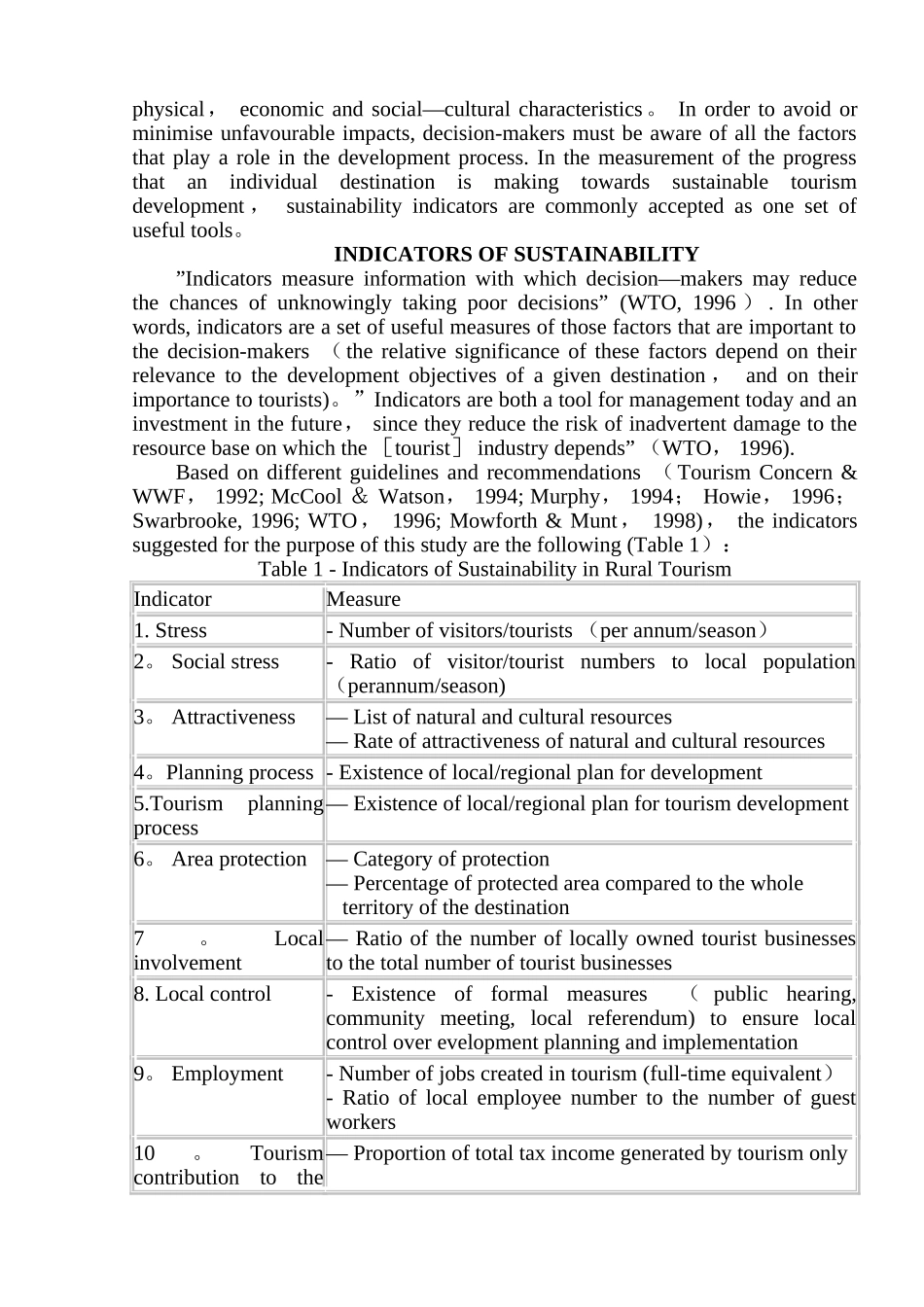外文文献RURAL TOURISM AND SUSTAINABLE DEVELOPMENTINTRODUCTIONRural tourism is a segment of the total tourist industry which is particularly important in Hungary, in a country with no spectacular natural attractions, without seaside, high mountains, rainforest or herds of exotic animals 。 However, its attractive cultural landscapes with small villages, thermal springs, rivers and lakes, combined with the traditional hospitality, are able to offer pleasant experiences to the kind of tourist who is looking for relaxation and recreation in a calm setting。On one hand, rural tourism development can play an important role in the diversification of the Hungarian tourist supply and in the creation of a more complex and colourful country image. On the other hand , rural tourism is not only the end, but the means to stimulate economic growth , to increase the viability of underdeveloped regions, and to improve the living standards of local populations.If rural tourism is to fulfil all these roles, it has to be developed in a way that ensures the long—term sustainability of the resources and that of the development progress itself。 But what is a sustainable way of development in rural tourism ? How can sustainability be monitored and promoted in rural destinations ? This paper attempts to answer these questions by presenting the current situation of Hungarian rural tourism through indicators that are considered to be relevant for this type of tourism。SUSTAINABLE TOURISM DEVELOPMENTThe concept of sustainable development was introduced by the World Commission on Environment and Development in the Brundtland Report in 1987, defining sustainable development as ”development that meets the needs of the present...


